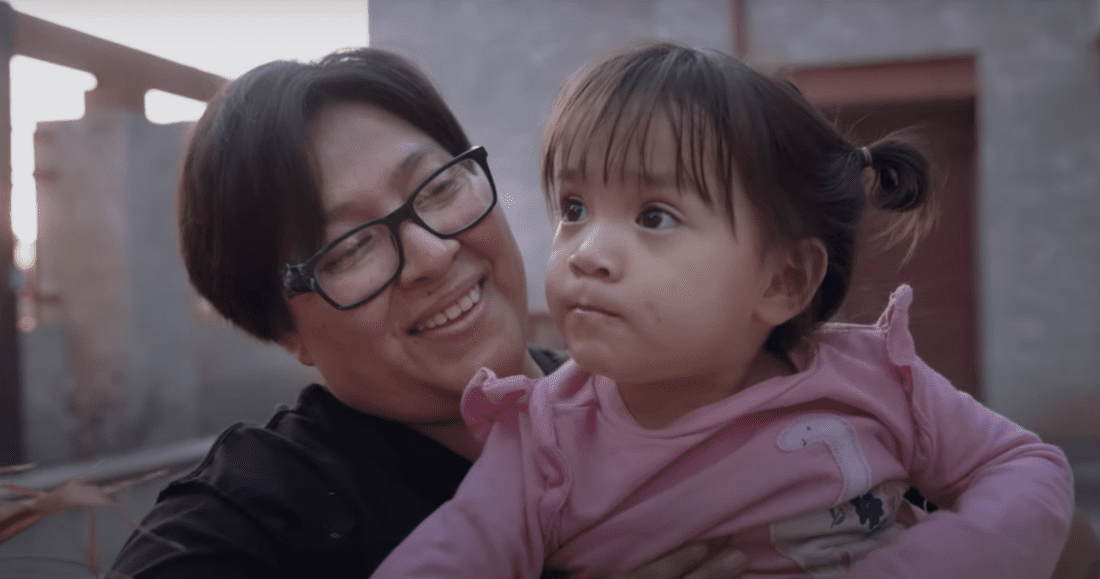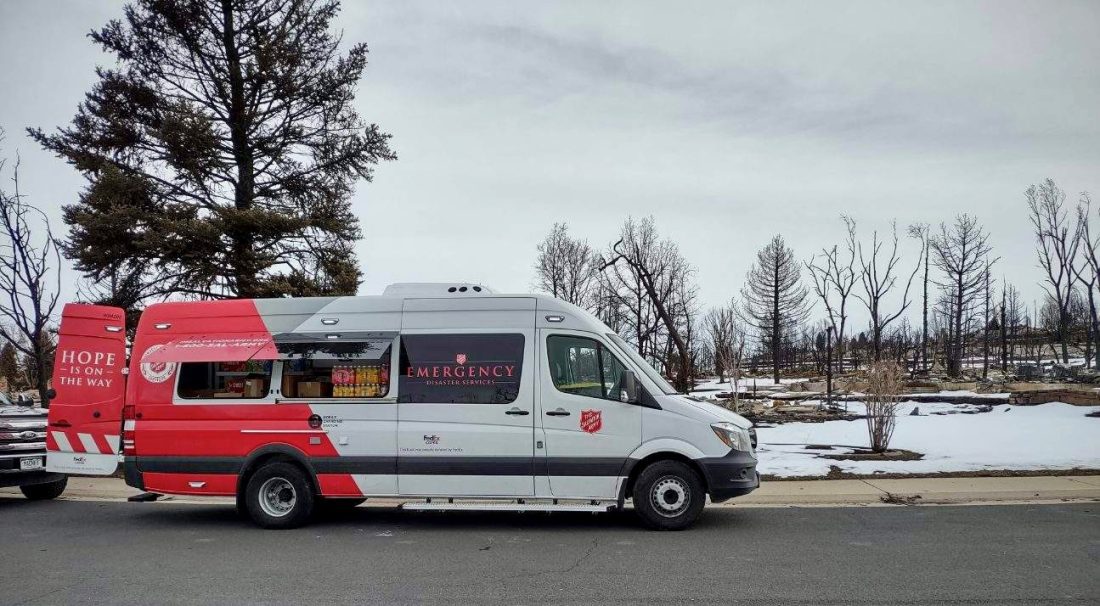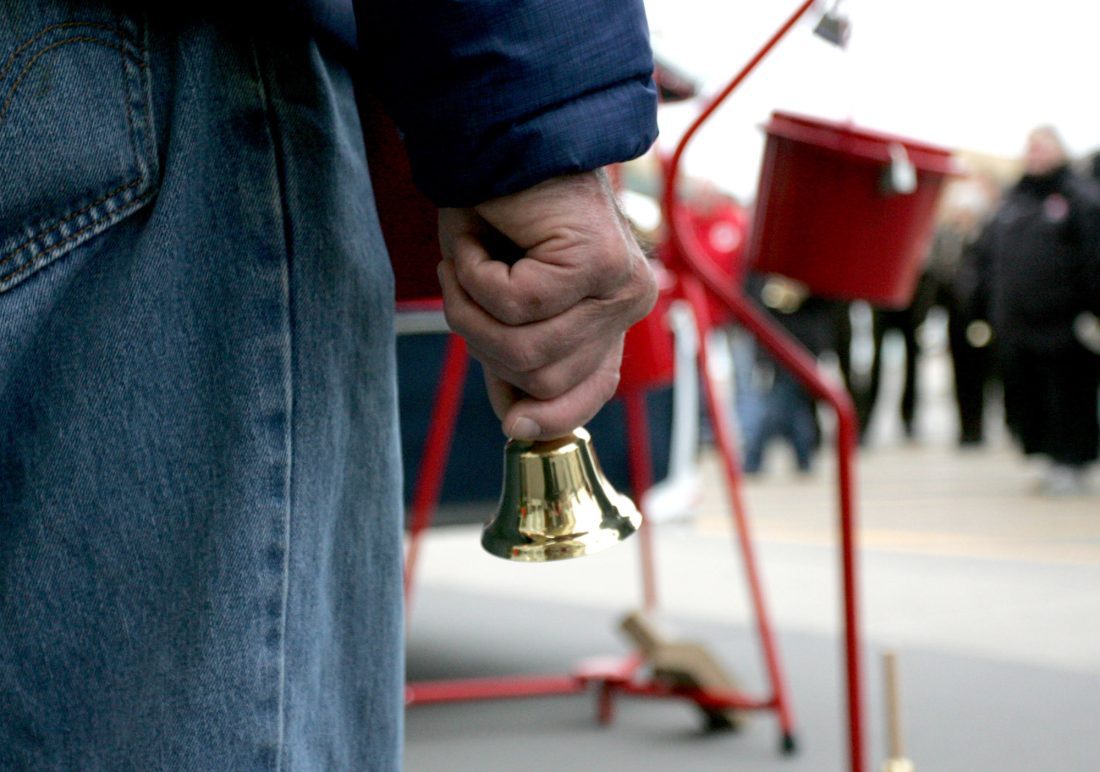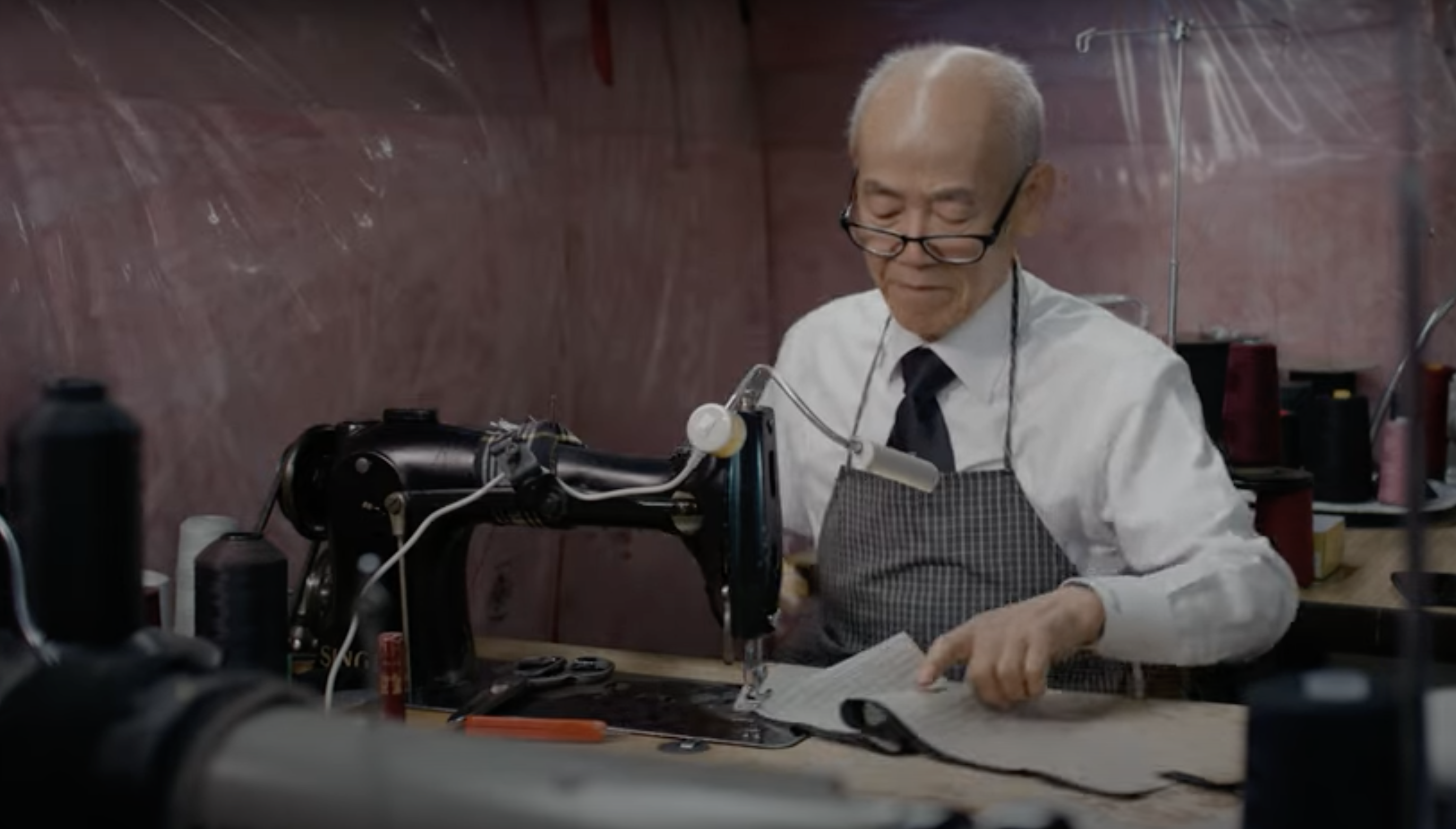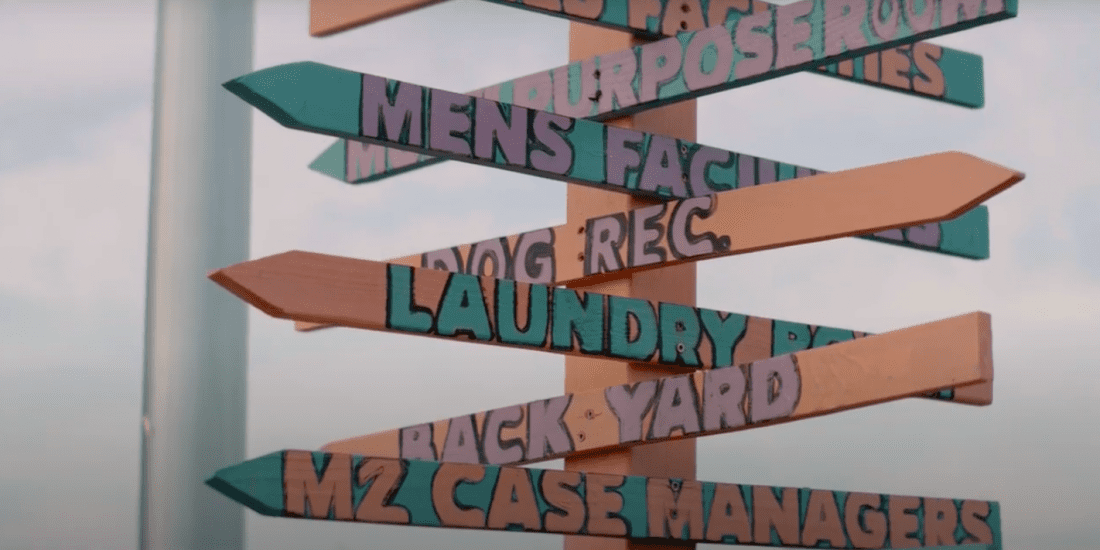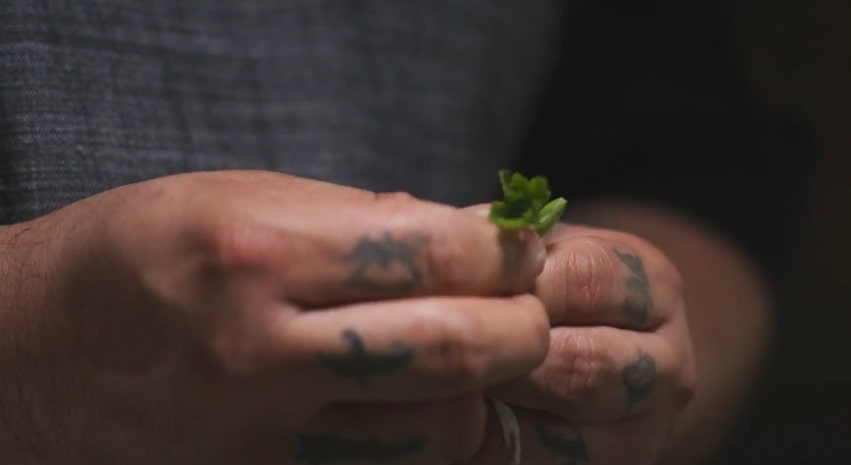Listen to this article
Listen to this article
Loading
Play
Pause
Options
0:00
-:--
1x
Playback Speed- 0.5
- 0.6
- 0.7
- 0.8
- 0.9
- 1
- 1.1
- 1.2
- 1.3
- 1.5
- 2
Audio Language
- English
- French
- German
- Italian
- Spanish
Open text
a unique path from homelessness to home. experiencing homelessness is often not just about a lack of housing. it’s also about sustainability. that’s why the salvation army has partnered with the cities of riverside and moreno valley, ca, to offer a path to sustainability for people experiencing homelessness – and to help beautify the city while they’re at it. read the transcript of the video here:. grant: i worked as a tv news producer. i was actually working for the abc network in san francisco. i worked on the morning news, which was an overnight shift. but on the way home, i would fall asleep at the wheel. my solution to that, my brain told me, “oh, you need some speed.” that got me. i was able to quit every other drug. drinking. i was able to quit it all on my own. but the meth, man… that got me. captain david cain: we got a call from the city, in moreno valley, and they said, “we want to clean up areas of the city and maybe offer some jobs to some homeless folks along the way.” we’ve seen them be placed in housing and we’ve seen it just not be enough. we’ve seen how a lack of an ability to handle some of the new situations that they’re in, have really caused them to kind of fall apart. captain kelly cain: they tell us they would rather have a job. and so once they find permanent employment, then it’s much easier to get into housing as well. captain david cain: the army was positioned well to offer a program of this capacity. captain kelly cain: we started homeless to work six months before we got moved to riverside. we had a meeting very similar to moreno valley, with the city officials. they’d wanted to do a program where they cleaned up the streets. captain david cain: we started a similar program called first impressions to clean the on and off-ramps of our city. captain kelly cain: first impressions crew goes out monday, wednesday, friday, and homeless to work crew goes out tuesday and thursday. grant: i was living with my brother, but he passed away suddenly and his wife didn’t want me around anymore. so that’s when i became homeless. that was like last september. i was just sitting in my car, living in a park where i was surrounded by people using drugs. not a good environment for someone who’s in recovery. so i was having a hard time finding work due to my age. i wound up in riverside, where i met some friends, and then they told me the salvation army’s hiring and i’m going, “yeah, i’m all about that!”. mariela: i was homeless, and i waited for people to dump their trash to see if they had left any, any food. and so the city was trying to tell me that i needed to leave because i’ve become a nuisance. we got a notice, you know, on the bush, and i was walking down the street, and this white truck pulled up and said, “hey, do you need a job?” and i said, “wow, yeah, i need a job.” and he says, “my name is vincent, and i work for the salvation army, and you can apply.”. vincent: i was that guy that just cost taxpayers money. i went to prison. it was normal, you know. i’m saying i would spend a night in the drunk tank. i was homeless the better part of 30 years. i quit drinking and i went from homeless to homeowner. captain kelly cain: we’re meeting people at their lowest point and helping move them to a place of sustainability. they are being hired and going to work and earning a day’s wage. grant: it’s a regular part time job and you know, i get a paycheck like everybody else. captain david cain: we begin to not only work with them to clean up areas of our city and then we help them eliminate the barriers, like identifying social security cards and id cards, in order to have the documents to be hired in california. at the end of the 90 day program, we have employment partners that hire individuals, based on our recommendation. we have people that travel through the pipeline and move on to full time employment, and they just are part of our team. mariela: i love to work. if i can have a job, and i can save my money, then housing will come. captain david cain: we find that work and becoming an employee and being accountable to showing up on time, doing it in the context of a loving community, really builds up the person from the inside out, so that that sustainability is available when they’re placed in housing. and so we have miracles walking among us. vincent: just having a relationship with the people is the biggest thing. grant: they’ve been great to me. it’s like, you know, “what do you need, and we’ll try to help you get it.” no, that’s my family, now. captain kelly cain: my husband and i are both products of the ministry of the salvation army. i came to the army from a homeless shelter, and so we believe so deeply in the ministry of the salvation army. mariela: the homeless to work program works wonders. now, i’m in a little studio, with my daughter and i, so it’s just us two, and i really love it! captain david cain: i deeply believe that the salvation army is called to the least and the last and the lost, and i think that that’s our calling as a church. do good:. see more videos like this in our video feed. are you a do gooder, someone who cares about bringing goodness into the life of your family and community? subscribe to the do gooders podcast to be inspired by those doing good and find tangible tips for simple actions you can take today. did you know the salvation army served more than 23 million americans last year fighting hunger, homelessness, substance abuse and more—all in a fight for good? where can you help? take our quiz to find your cause and learn how you can join in today. download video
Open context player
Close context player
Plays:-Audio plays count
a unique path from homelessness to home. experiencing homelessness is often not just about a lack of housing. it’s also about sustainability. that’s why the salvation army has partnered with the cities of riverside and moreno valley, ca, to offer a path to sustainability for people experiencing homelessness – and to help beautify the city while they’re at it. read the transcript of the video here:. grant: i worked as a tv news producer. i was actually working for the abc network in san francisco. i worked on the morning news, which was an overnight shift. but on the way home, i would fall asleep at the wheel. my solution to that, my brain told me, “oh, you need some speed.” that got me. i was able to quit every other drug. drinking. i was able to quit it all on my own. but the meth, man… that got me. captain david cain: we got a call from the city, in moreno valley, and they said, “we want to clean up areas of the city and maybe offer some jobs to some homeless folks along the way.” we’ve seen them be placed in housing and we’ve seen it just not be enough. we’ve seen how a lack of an ability to handle some of the new situations that they’re in, have really caused them to kind of fall apart. captain kelly cain: they tell us they would rather have a job. and so once they find permanent employment, then it’s much easier to get into housing as well. captain david cain: the army was positioned well to offer a program of this capacity. captain kelly cain: we started homeless to work six months before we got moved to riverside. we had a meeting very similar to moreno valley, with the city officials. they’d wanted to do a program where they cleaned up the streets. captain david cain: we started a similar program called first impressions to clean the on and off-ramps of our city. captain kelly cain: first impressions crew goes out monday, wednesday, friday, and homeless to work crew goes out tuesday and thursday. grant: i was living with my brother, but he passed away suddenly and his wife didn’t want me around anymore. so that’s when i became homeless. that was like last september. i was just sitting in my car, living in a park where i was surrounded by people using drugs. not a good environment for someone who’s in recovery. so i was having a hard time finding work due to my age. i wound up in riverside, where i met some friends, and then they told me the salvation army’s hiring and i’m going, “yeah, i’m all about that!”. mariela: i was homeless, and i waited for people to dump their trash to see if they had left any, any food. and so the city was trying to tell me that i needed to leave because i’ve become a nuisance. we got a notice, you know, on the bush, and i was walking down the street, and this white truck pulled up and said, “hey, do you need a job?” and i said, “wow, yeah, i need a job.” and he says, “my name is vincent, and i work for the salvation army, and you can apply.”. vincent: i was that guy that just cost taxpayers money. i went to prison. it was normal, you know. i’m saying i would spend a night in the drunk tank. i was homeless the better part of 30 years. i quit drinking and i went from homeless to homeowner. captain kelly cain: we’re meeting people at their lowest point and helping move them to a place of sustainability. they are being hired and going to work and earning a day’s wage. grant: it’s a regular part time job and you know, i get a paycheck like everybody else. captain david cain: we begin to not only work with them to clean up areas of our city and then we help them eliminate the barriers, like identifying social security cards and id cards, in order to have the documents to be hired in california. at the end of the 90 day program, we have employment partners that hire individuals, based on our recommendation. we have people that travel through the pipeline and move on to full time employment, and they just are part of our team. mariela: i love to work. if i can have a job, and i can save my money, then housing will come. captain david cain: we find that work and becoming an employee and being accountable to showing up on time, doing it in the context of a loving community, really builds up the person from the inside out, so that that sustainability is available when they’re placed in housing. and so we have miracles walking among us. vincent: just having a relationship with the people is the biggest thing. grant: they’ve been great to me. it’s like, you know, “what do you need, and we’ll try to help you get it.” no, that’s my family, now. captain kelly cain: my husband and i are both products of the ministry of the salvation army. i came to the army from a homeless shelter, and so we believe so deeply in the ministry of the salvation army. mariela: the homeless to work program works wonders. now, i’m in a little studio, with my daughter and i, so it’s just us two, and i really love it! captain david cain: i deeply believe that the salvation army is called to the least and the last and the lost, and i think that that’s our calling as a church. do good:. see more videos like this in our video feed. are you a do gooder, someone who cares about bringing goodness into the life of your family and community? subscribe to the do gooders podcast to be inspired by those doing good and find tangible tips for simple actions you can take today. did you know the salvation army served more than 23 million americans last year fighting hunger, homelessness, substance abuse and more—all in a fight for good? where can you help? take our quiz to find your cause and learn how you can join in today. download video
Listen to this article











